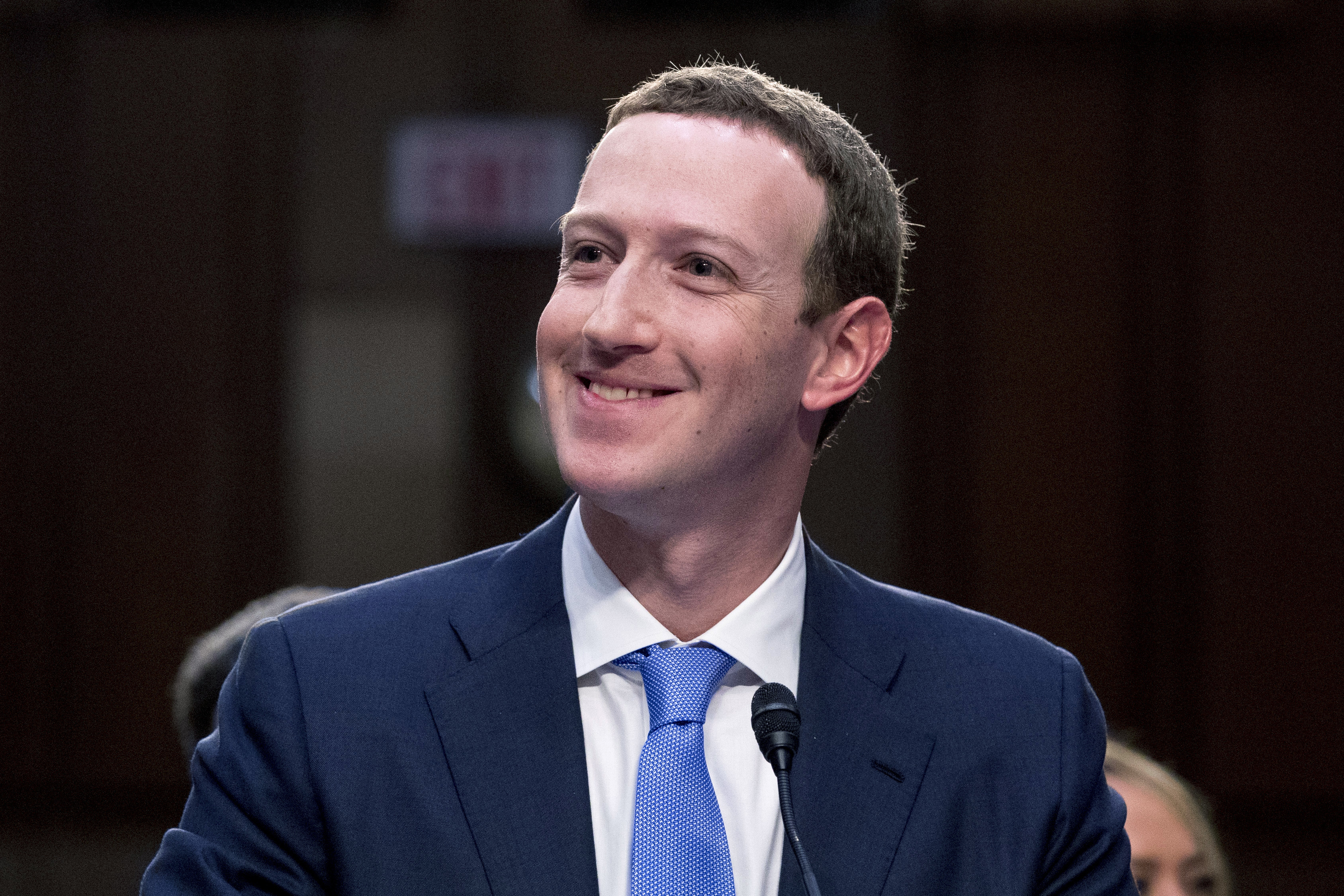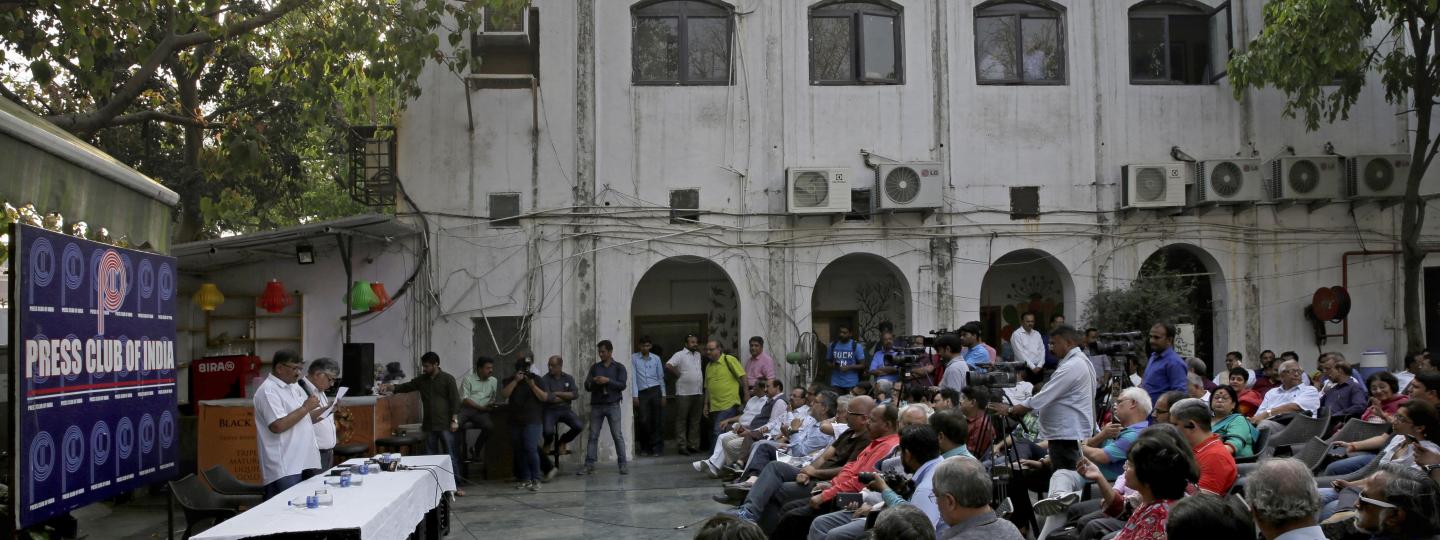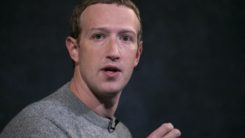The Week in Fact-Checking is a newsletter about fact-checking and accountability journalism, from Poynter's International Fact-Checking Network & the American Press Institute's Accountability Project
Facebook in the hot seat
This week, Facebook CEO Mark Zuckerberg testified in front of U.S. congressional committees over the course of two days. While the testimony, prompted by Facebook's recent scandal involving data firm Cambridge Analytica, was mostly focused on user privacy, it shed a little light on how Zuckerberg views the platform’s misinformation problem — as well as how ill-informed Congress is about how Facebook works.
Ironically, prior to the hearings, several hoaxes about Facebook made the rounds online. BuzzFeed News reported that one hoax falsely claimed Zuckerberg said users could check on their privacy status simply by typing “BFF” in a comment. The New York Times tweeted that Sen. Chris Coons (D-Delaware) found two fake accounts impersonating him shortly before he grilled the Facebook CEO.
Before the hearings concluded Wednesday, The Times published a comprehensive fact check of Zuckerberg’s comments that contains several ratings of “false” or “misleading.” While technically true, his claim that people aren’t allowed to have fake accounts on Facebook caused a stir on Twitter, seeing as they have persisted on the platform for some time.

This is how we do it
- Poynter’s Daniel Funke profiled some of the students who are working on fact-checking and misinformation projects around the world.
- In Brazil, Aos Fatos and Lupa fact-checked former President Lula before he turned himself over to the police.
- Fred Fact, the Fact-Checking Day cartoon with seven tips to combat misinformation, is now available in two more languages: Swahili and Italian. Check it out.
This is bad
- CNN reported that the biggest Black Lives Matter page on Facebook is fake.
- It’s election season in the U.S. so get ready for more faux-checking. This one, called FactCheckWV.com, has only a tiny disclaimer at the bottom of the endless-scroll page.
- BuzzFeed News uncovered a complex operation that used fake sites to target NGOs linked to George Soros.

This is fun
- Fashionista fact-checked Mark Zuckerberg’s suit as the Facebook CEO testified in Washington, D.C., this week.
- The showrunners from AMC’s “The Terror” really want you to fact-check them.
- No, this isn’t a photo of the former Brazilian president’s son’s house. It’s a university.
Research you can use
- From API’s Jane Elizabeth: Here are some notes on intriguing research from last week’s fake-news-focused Midwest Political Science Association conference in Chicago.
- Facebook launched an initiative to provide more independent research on how social media platforms impact elections. The tech company says it will not review findings prior to publication.
- Cna yuo raed tihs? A researcher tries to explain the science behind a meme.

A closer look
- Journalists panicked after the Indian government issued, and then retracted, fake news guidelines last week. Here’s why.
- Mother Jones says Facebook is the “best propaganda platform” and the Mexican election illustrates why.
- The Boston Globe published an in-depth profile of Christopher Blair — one of the more notorious fake news publishers in the U.S. (Speaking of Blair, here’s a detailed look at how his sites operate.)
Coming up
- Demo your app at the Fake News Horror Show. Deadline is May 7.
- The International Symposium on Online Journalism will livestream its fake news conference in English and Spanish, tomorrow and Saturday.

If you read one more thing
Mike Ananny's comprehensive report on the state of Facebook’s fact-checking partnership for the Tow Center for Digital Journalism was released last week. Based on four anonymous senior people from four of the tech company’s six partners, the report presents the status of the partnership as it stood in January, when the interviews were completed. A lot has happened since: Fact-checkers and Facebook met in February; Facebook announced it would allow for flagging of false photos; and the tool is now active in three more countries. (Disclosure: Being a signatory of the International Fact-Checking Network is a necessary condition for being a Facebook fact-checking partner.)
Quick fact-checking links
Here are six examples of fake news about marijuana. // Everything you need to know about misinformation in the EU this week. // Is relying on Wikipedia to fix YouTube and Facebook’s misinformation problems a good thing? Here’s one take. // Spanish Socialists want a fake news amendment to the country’s new data protection bill. // Read MediaShift’s interview with EconoFact, a nonprofit that supplies factual information about economic and social policies. // An anchor for a major Sinclair station in Washington, D.C., blasts the “propaganda campaign” against her station’s owners. // Here’s an update on how things are going with NewsGuard’s “war on fake news.” // Facebook announced that people who manage Pages with large followings will now have to be verified. // RealClear Politics launched a fact check review aimed at codifying the work of six prominent American fact-checking organizations. // Lost in translation: The Sun renames a suspect after an verb.
Until next week,







